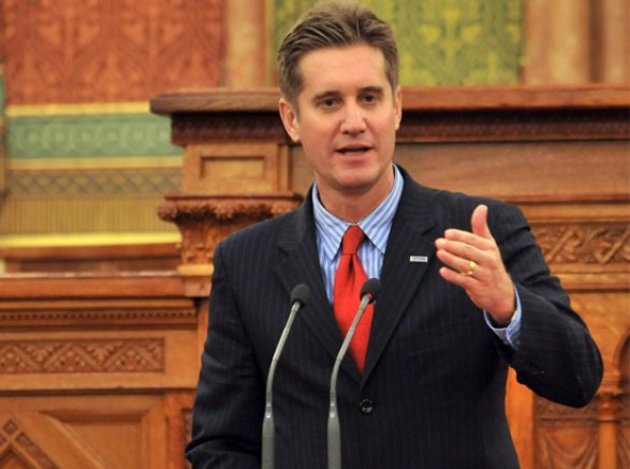Former US Assistant Secretary of State for the South Caucasus affairs, Matthew Bryza, commented on the latest amendments adopted by the US Congress in an interview with Vestnik Kavkaza.
"These amendments in the National Defense Authorization Act for 2021 calling for report the status of internally displaced persons in illegally occupied territories in Ukraine, Georgia, Moldova and Azerbaijan is quite significant in a context of the Nagorno-Karabakh conflict," he said.
"I think that Azerbaijan has been brought together into the same vehicle because, in Washington, I think, people have generally come to the conclusion, at least in the Congress, that this latest round of attacking and shooting that began on July 12 on the Armenia-Azerbaijan border was started by Armenia. It is a huge accomplishment for Azerbaijan’s supporters in Washington to have this language include Azerbaijan. In my experience as OSCE Minsk Group co-chair, my counterpart the Armenian foreign minister would be furious if I ever talked or when I talked about Nagorno Karabakh and 7 surrounding regions being occupied by Armenian forces. And the Armenian-American lobbying groups in Washington always push very hard against there ever be a mention of Armenia occupied Nagorno-Karabakh or Azerbaijan’s territory of Nagorno-Karabakh," he believes.
"This is a significant development. I don’t know whether it shows that Washington is becoming more active or activated in pushing for Nagorno-Karabakh settlement. I don’t see president Trump taking up this issue, but I think it is still going to be an issue managed largely by OSCE Minsk Group co-chairs," he noted.
"The US government’s view on the Nagorno-Karabakh conflict and its peaceful resolution has not changed, neither for the last four years nor the last 26 years. US’s view is that there should be, can be and, in fact, exists a formula that allows for upholding of the international principal of territorial integrity of states as well as the self-determination of peoples. And it is the so-called Madrid Documents that lays up these basic principles which I was very actively involved in negotiating back in between 2006 and 2008. And that set of principles was agreed in principle by then president Sargsyan of Armenia and president Aliyev of Azerbaijan. They never finalized those principles because there were still some important details that needed to be adopted," he stressed.
"So the US’s view has remained - the helping two sides come together to reach a mutually agreed framework for a final peace agreement that allows for both the territorial integrity of states to be upheld, allows for the self-determination of peoples to be upheld and also is based on the principle of none first use of force or no threat to use force. Those three principles are key elements of the Helsinki Final Act. The US has long supported all three of them," he conluded.






